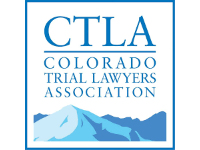
Call Us 24/7 For A Free Legal Consultation
At Rector Stuzynski LLC, We Get You MORE!
Exceptional Results Require Outstanding Attorneys
$4 Million +
Motor Vehicle Accident
$1.5 Million
Rear-End Car Accident
$1 Million
Motorcycle Accident

Millions Of Dollars Recovered Every Year For Our Satisfied Clients
Awards & Associations






Personal injury claims are a way to hold the negligent party accountable for their actions that caused an injury to another person. The way this is done is by forcing the at fault party to pay for the damages that were incurred by the victim, which means accepting a settlement. But sometimes both parties can’t agree on a fair settlement which means that the case must go to a judge or jury to finalize the outcome if mediation doesn’t help to resolve the lawsuit. This is where you’ll have to choose between a settlement, judgment or verdict. But which one is best? Let’s take a deeper look at the differences and when to choose one over the other.

Most personal injury claims are closed out via settlement. This means that both parties have presented their version of the case, their evidence, witness testimony and any other aspects of the case and then presented a compensation package for the victim that both sides can agree on. Settlements can come in the form of a single lump sum payout to the victim or a structured settlement, where the at fault party or insurance company pays out a designated amount to the victim every month or whatever timeline is agreed upon until the full amount is paid.
When the details of the case are straightforward and there aren’t a bunch of things that are debatable or hard to prove in the case, settlements are usually the outcome of the claim because both parties can easily see who was at fault and how much the damages were for the victim. So the best way to get the case over with is to just agree on the fair terms of the settlement and accept it. But sometimes there is a lot of back and forth negotiating that has to take place between both parties before a settlement amount can be agreed upon. In other cases where both parties can’t come to an agreement, the lawyers will bring in a mediator which is an unbiased third party to come in and assess the situation and provide guidance on what is fair. Many times this can help to bring both parties to an agreement, but in some cases the parties just can’t agree, which is when the case will go to a judge or jury.
When a personal injury claim settlement cannot be agreed upon, the case goes to trial which is where both parties will present their side of the story to a jury of their peers. Once both sides have given their arguments, the jury will decide whether the plaintiff wins the case or not. The jury will also determine the amount of compensation that will be paid out to the plaintiff based on economic damages and non-economic damages that were incurred by the plaintiff such as medical treatment, rehabilitation, lost wages, pain and suffering and more.
In civil claims, the jury does not need to prove guilt beyond reasonable doubt like they need to in criminal cases. Instead, they usually use a preponderance of evidence which means that the jury believes that the defendant is most likely at fault for the accident that caused the injuries in question. If the jury does decide that the defendant is most likely responsible for committing the act that caused the injuries, then they will decide the case in favor od the plaintiff and award the amount of compensation that the jury thinks is fair for the plaintiff to recover from the defendant.
A judgment can be entered either by a judge if a trial is held to a judge other than a jury, or by a judge if the defendant fails to respond to certain deadlines. Even if a jury returns a verdict, that is not always the last word. A judge must review a jury verdict and enter a judgment. Sometimes a jury’s verdict, which includes an award for damages, will need to be adjusted according to Colorado law. This is one way a judgment can differ from the verdict if there are important laws to consider in relation to the case at hand that the judge thinks need to be included in the decision and they believe that the jury did not take those laws into consideration. Most of the time the judgment will be in line with the verdict though.
Once the judgment is entered, then it can be certified by the clerk. The last and final step to make the case final is the court clerk entering the final verdict and judgment into court records. Once this is done, then the outcome is completely finalized. But this also means that now appeals can be brought up by whichever party does not agree with the outcome. We will discuss that more below.
If you accepted a settlement for your injury claim, then no, you won’t be able to appeal your personal injury case because a settlement is a written contract that states that the claim is final and that both parties have agreed to the compensation package and agreed that the case is concluded with no right to reopen the claim. However, if your case went to trial and resulted in a judgment or verdict from the courts and the process has been completely finished by entering the judgment into court records, then you are able to appeal the case because you did not sign a settlement that says otherwise.
This is where cases can get drawn out over long periods of time because the original case going to trial usually takes months or even longer to finalize in some cases and now the entire process has to start over from the beginning for an appeal. Many people believe that an appeal is a do over before a different court, but that is not the case. Rather than rehash the facts at the trial level, an appeal is a different proceeding where the parties argue over whether the judge made legal mistakes when ruling on the trial that affected the outcome in an improper way. If you have a case that is on appeal, you will want an experienced personal injury attorney on your side to ensure you get the best possible results.
Whether you are pursuing a settlement for your injury claim or wanting to take your case to trial, you should always have a personal injury lawyer handling your claim if you want the maximum compensation for your injuries. Injury lawyers deal with these types of cases every day and are your absolute best bet for putting together a solid case that can get you a favorable resolution. In the event that your case does go to trial, you should make sure you work with an injury attorney that has extensive experience with trials because they are much more complicated than putting together a settlement. Lucky for you, our attorney Michael Stuzynski has a long history as a trial attorney for both civil and criminal cases, so he is very familiar with how to get the best results from a jury trial and judge.
If you’ve been injured, don’t hesitate to reach out to our team at Rector Stuzynski LLC. We have a compassionate team of lawyers and legal staff that are happy to help in any way possible so you can rest and focus on healing while we handle your injury claim. We offer free consultations over the phone 24/7 and also welcome in office visits with our team at our Downtown Colorado Springs office.
We serve clients injured anywhere throughout the state of Colorado, but we focus on residents of these areas: Colorado Springs, Manitou Springs, Fountain, Briargate, Monument, Black Forest, Pueblo, Canon City, Larkspur, Security-Widefield, Peyton, Castle Rock, Teller County, El Paso County, Elbert County, Park County, Douglas County and beyond.
Consultations are always free and available 24/7 over the phone.